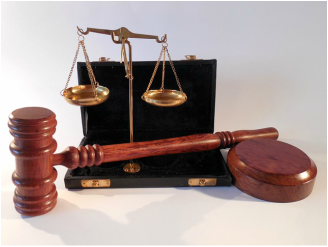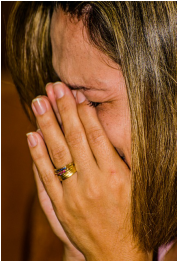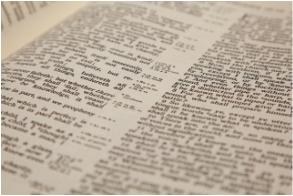|
Continuing the message from chapter 14, God describes the details of the coming deportation. Jeremiah Chapter 15 Lessons from the text A Day of Reckoning There comes a time when God no longer accepts intercessory prayers but will decree judgment against sinners. Moses and Samuel are two great prophets of God, serving as both leaders to and advocates for the people. Moses and Samuel had close relationships to God while on the earth, speaking to Him as familiar as one of us might speak to our friends. Yet despite how much respect God has for these men, there comes a point when even their prayers are not enough to turn aside the wrath of God. Day after day God extends mercy to the sinner. Mercy means to withhold that which is deserved. A liar deserves punishment. A thief deserves punishment. An extortionist deserves punishment. Yet are they punished? The moment a thief snatches that which is not his, is he struck dead in judgment? No. God, and our justice system, extend mercy to give the person an opportunity to repent. No one deserves a second chance. Out of mercy, God and we give people a second, third, fourth, even hundredth chance to change their character. After so long, however, God’s mercy will run out. He will grow impatient with your continual sin and refusal to harken to His call for repentance, and when He cuts you off, there is no person in hell, earth, or heaven who can intercede to turn aside His wrath to give you one more chance. Such is why it is so essential that if God is calling you to repentance that you accept Him today. Verse by Verse Commentary 1 Adding to His comment in Jeremiah 14:11, God says that Jeremiah need not pray a prayer of intercession for these people because God would not even accept such a prayer from Moses or Samuel. The sins of the people are so great that nothing can prevent God's judgment from occurring. Noteworthy is that God's judgment is casting the people away from Him. 2-3 If the people begin to seek God, Jeremiah is to decree God's judgment against people. God has already allotted the future of the people, knowing who is going to die in battle, starve to death, be eaten by animals, and be deported. The people have lost the privilege of working with God to create the direction of their lives, for now they can only receive what He has already decreed. 4 This unchangeable decree of judgment is the direct result of one man's sins. Under Hezekiah, Judah had removed all idolatry and had truly turned back to God. However, Manasseh rebuilt everything that his father had torn down, and led Judah further into idolatry than it had ever been. In response, God promised to destroy Jerusalem (II Ki. 21:1-18). 5-6 Because they have forsaken God, no one will side with or feel sorry for their distress. When one does wickedly, then one loses the friendship of those who would actually help one in a time of trouble; forsaking that which is righteous, one separates oneself from all of one's help. Noteworthy is that God has grown tired of repenting of His judgments against Israel. To repent means to turn back, so God is merely saying that in response to the intercessory prayers of His priest, He has removed judgment again and again from His people. This time, however, God will not accept the intercessory prayers (v. 15). God has grown tired of withholding judgment just to watch His people sin worse and worse. 7 The people have passed from God's mercy and grace to His wrath. As the Almighty Creator, He takes responsibility for everything that will happen to the Jews, even though He is not the literal person who will come against them. Verse 2 makes it clear that an invading army will be the cause of a great portion of the deaths. 8-9 With the deaths of the sons and husbands, the majority of those left will be widows. Even the one who has many sons will be left bereft, losing the will to live because of the trouble that has come upon her. Seeing the judgments of God, those who are left will be forced to admit that they are in sin, hence their shame. 10 Jeremiah laments his situation. As God has revealed the sin of those around him, he feels that he is standing alone against all others. This feeling is somewhat justified as the prophets and teachers of the law have tried to kill him (Jer. 11:21). 11 In response to Jeremiah's concern, God says that the remnant that will be left will be well treated by the conquers. This is fulfilled by the generous treatment of the Jews by the Babylonians when they witnessed the Lord moving on behalf of His people (Est. 8:17). 12-14 God returns the focus on the judgment of the people in general. Because of their sin, they will not be able to break the strength of the northern invaders (Babylon), but will be carried away captive. 15-21 Jeremiah enters into a conversation with the Lord, asking for mercy for himself through the coming trouble on the basis that he has been obedient to God. 15-18 Jeremiah quotes Psalm 1, saying that he has not joined himself to the main society just to fit in but has suffered rebuke for God's namesake. Separating himself from society, Jeremiah has experienced a constant pain. Scripture says that Lot was grieved daily because of the sin of those around him (II Pet. 2:7-8). Anyone who is has a spirit of righteousness in him but lives in an unrighteous society with feel this grievance in his spirit. It is the Spirit of God witnessing and lamenting over those who are lost to sin. Such is why Jeremiah is not merely praying for himself, but for all those who are faithful to God. He even challenges God to follow through on His promise to bless the righteous and spare them from times of trouble (Ps. 37:17). 19-21 God makes it clear that His righteousness and mercy has not left the people. All the people have to do to return to the blessing of God is to remove that which is vile (their sin) and hold to that which is precious (God). God has quit dealing with the people in that He will no longer turn away from judgment against them on account of His mercy, but if the people of their own accord choose to come back to God, then He will deliver them. God has taken the responsibility of repentance off of His action and placed it squarely on the shoulders of the people. That is, God has done His part by sending prophets, judges, and signs onto the people. It is now up to them if they will harken and return. ___________________ Thank you for your faithfulness in studying God’s word. Please comment below to share what you learned from today's lesson.
0 Comments
Leave a Reply. |
Devotional Categories
All
Archives
September 2023
|
|
Join my mailing list!
|
Thank you!You have successfully joined our subscriber list. |
|
© 2024 Melissa Beaty
|
